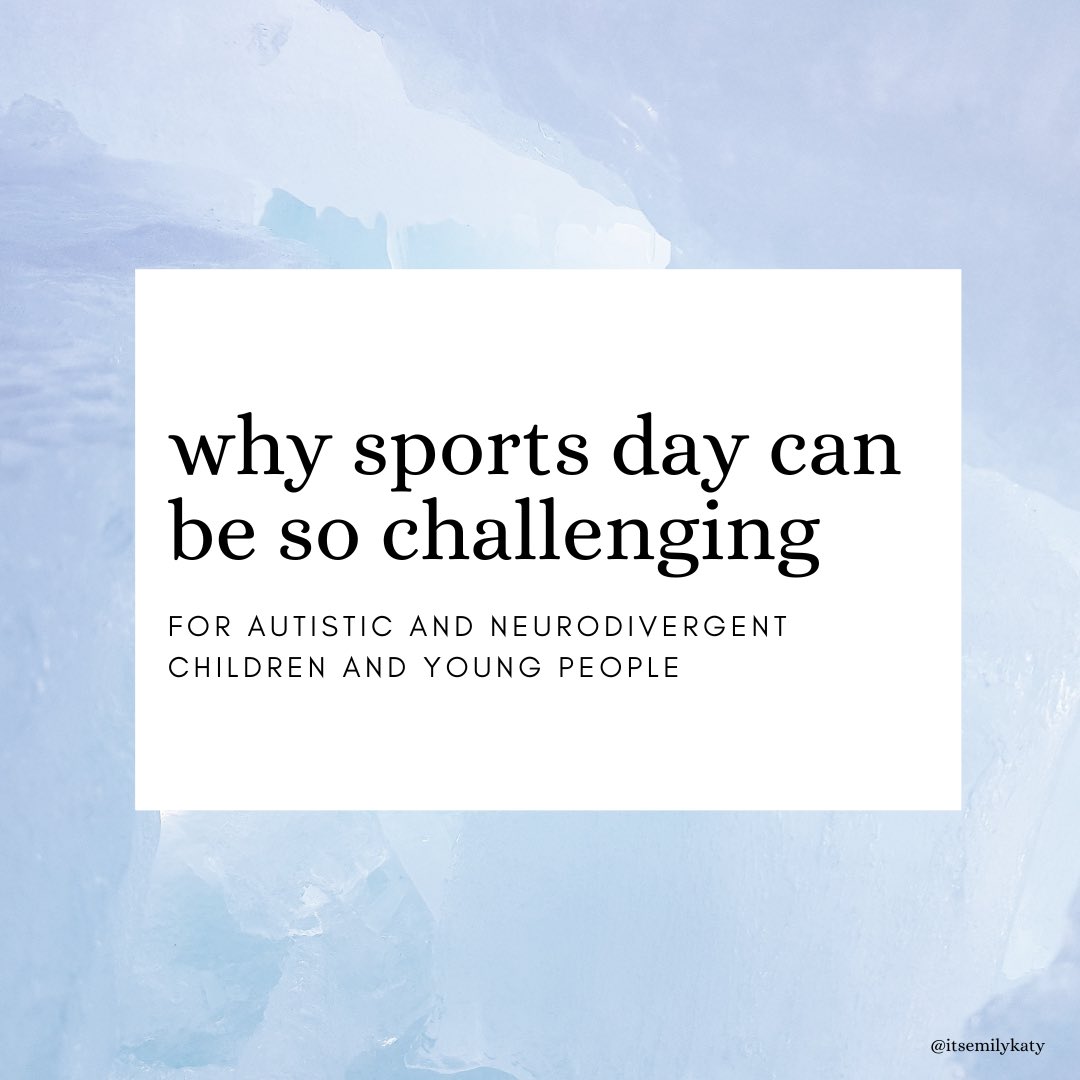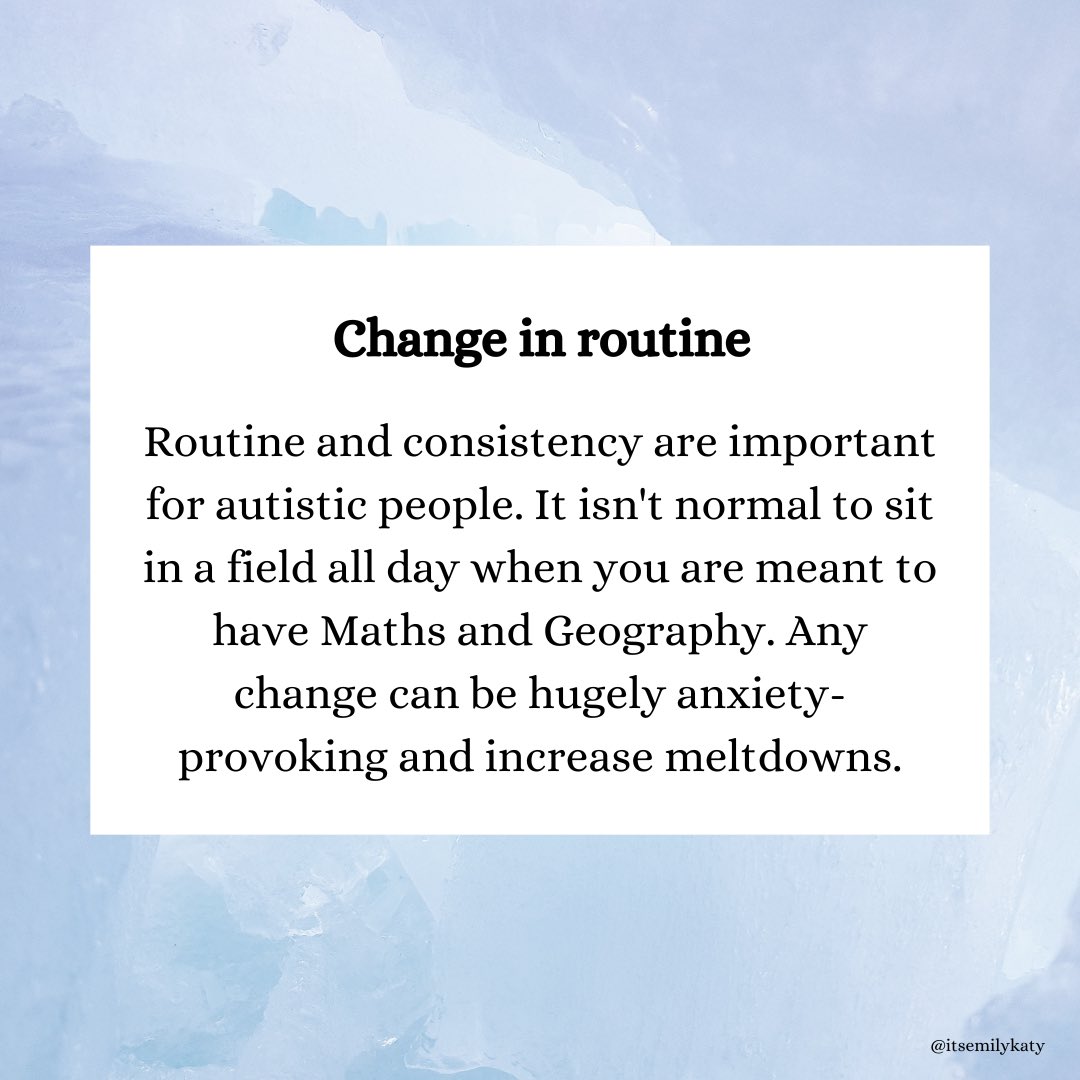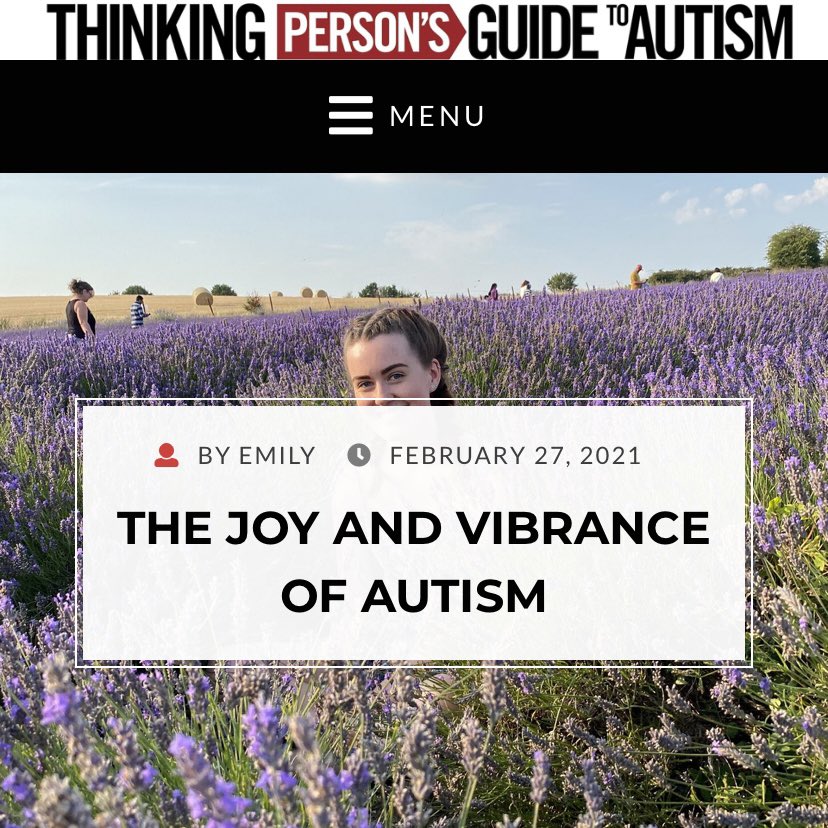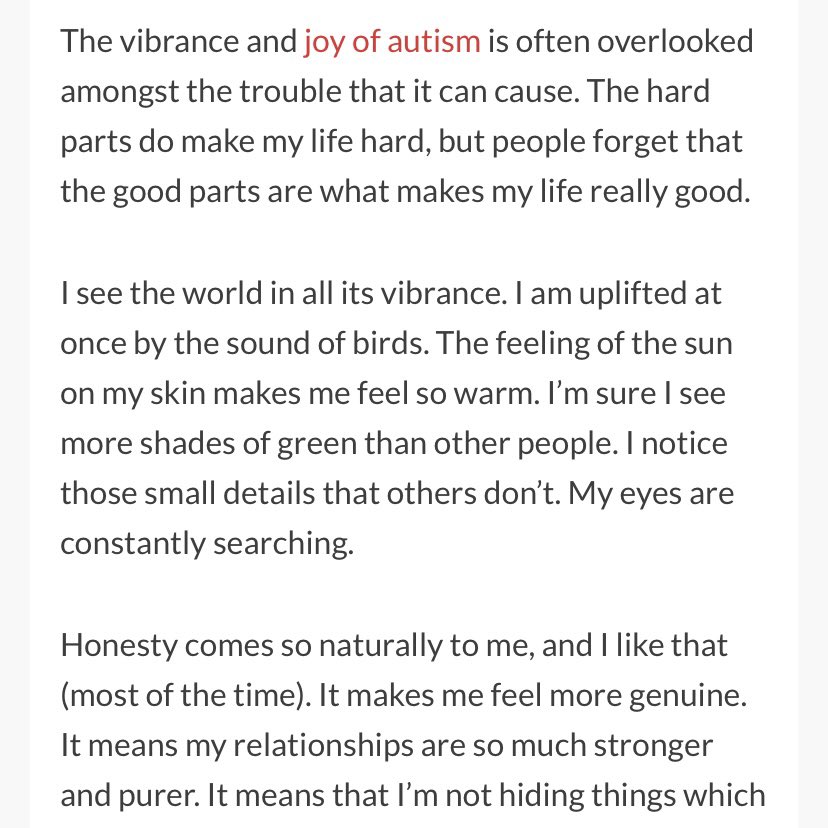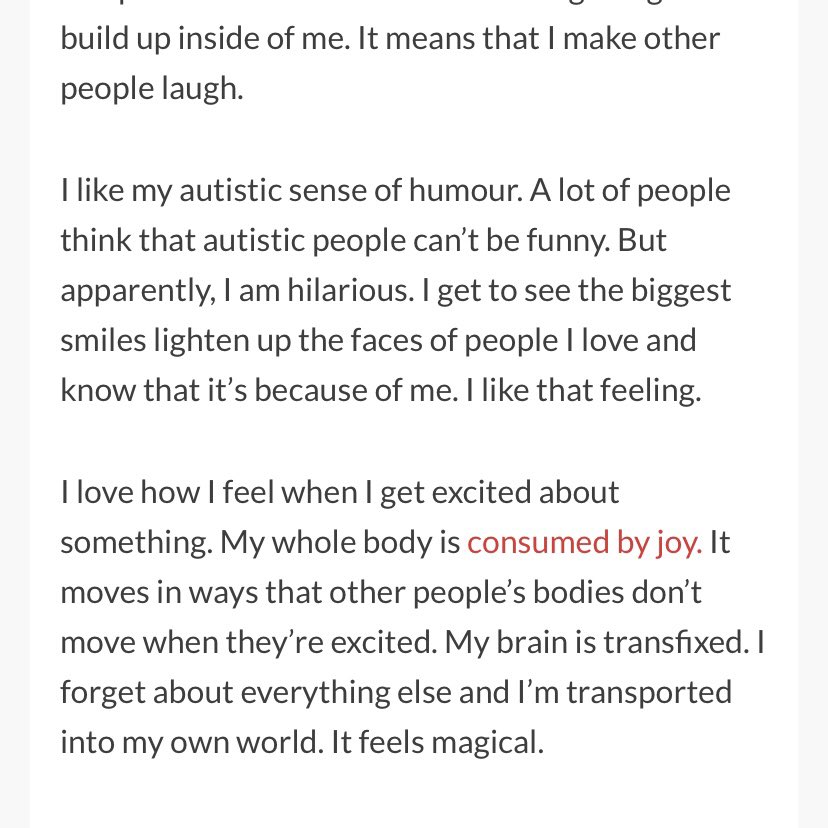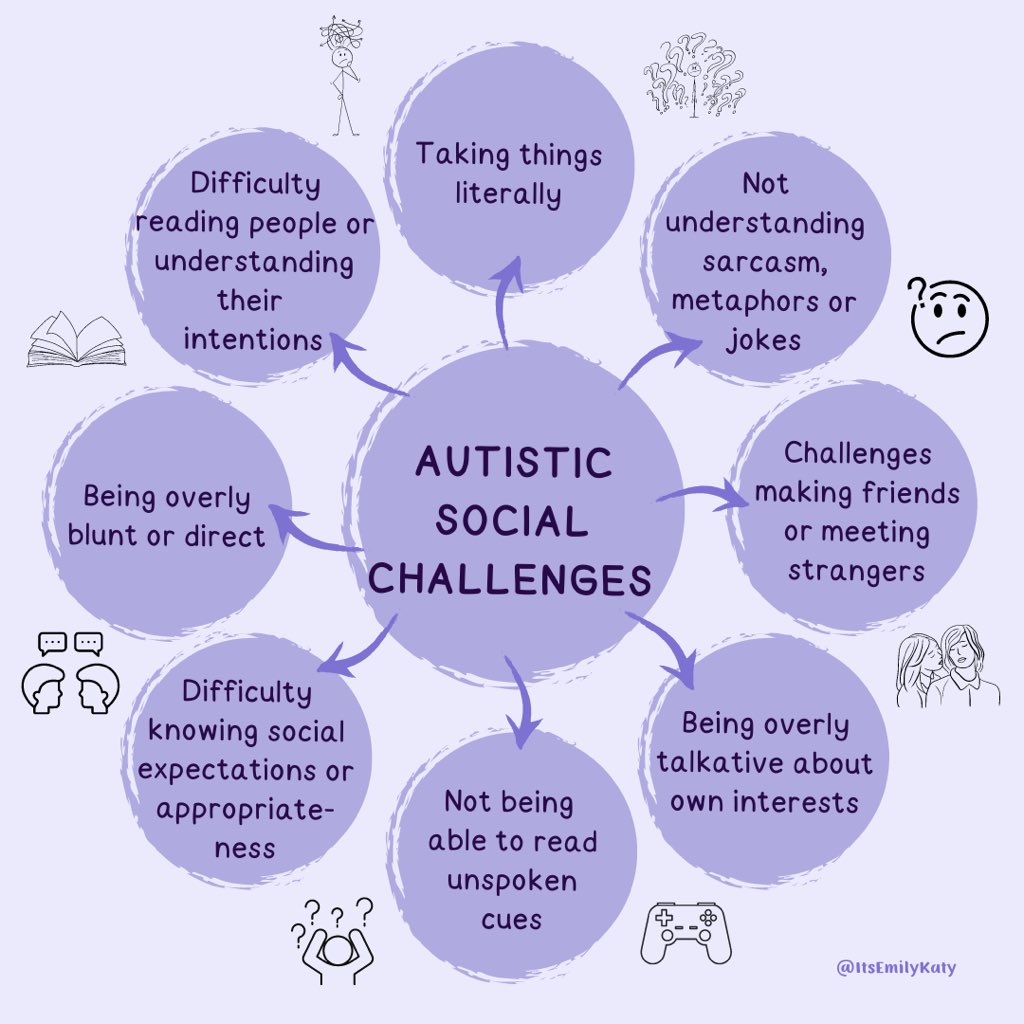Autistic pride day. 🤍
Autistic pride is a journey, and is certainly not linear, nor a final destination. I see it as encompassing a range of things.
📸 - Emma Fletcher photography.
Autistic pride is a journey, and is certainly not linear, nor a final destination. I see it as encompassing a range of things.
📸 - Emma Fletcher photography.

For me, autistic pride is about…
🔹 Embracing your autistic identity (or at least, feeling okay with it)
🔹 Gaining a new understanding of who you are and how your brain works
🔹 Learning that everyone’s brains are different and that is wonderful
🔹 Embracing your autistic identity (or at least, feeling okay with it)
🔹 Gaining a new understanding of who you are and how your brain works
🔹 Learning that everyone’s brains are different and that is wonderful
🔹 Rewriting your own past and the narrative you have been told about yourself
🔹 Shouting to the world about what autism actually is and what it isn’t
🔹 Meeting and forming friendships with other autistic people and learning from each other
🔹 Shouting to the world about what autism actually is and what it isn’t
🔹 Meeting and forming friendships with other autistic people and learning from each other
🔹 Unmasking in places which are safe and comfortable to do so and becoming your authentic self
🔹 Basking in the glorious feeling of autistic joy
🔹 Uncovering the shame you have grown up with and being able to express your authentic autistic reactions
🔹 Basking in the glorious feeling of autistic joy
🔹 Uncovering the shame you have grown up with and being able to express your authentic autistic reactions
🔹 Being able to enjoy and talk about your special interests without feeling ashamed
🔹 Feeling proud of yourself for getting to where you are
🔹 Not forcing yourself into situations which make you uncomfortable anymore
🔹 Feeling proud of yourself for getting to where you are
🔹 Not forcing yourself into situations which make you uncomfortable anymore
🔹 Learning that what society expects isn’t always achievable and being okay with that
🔹 Changing the narrative that autism = bad, to autism = YOU and you are wonderful, that you do not need to change and you deserve for your needs to be met
What is autistic pride to you?
🔹 Changing the narrative that autism = bad, to autism = YOU and you are wonderful, that you do not need to change and you deserve for your needs to be met
What is autistic pride to you?
Some more thoughts about autistic pride day on my blog here! authenticallyemily.uk/blog/autistic-…
• • •
Missing some Tweet in this thread? You can try to
force a refresh

 Read on Twitter
Read on Twitter

